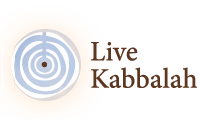The Parasha opens with the passage: “You shall appoint Shoftim (Judges) and officers at the gates of your cities…” conceivably pointing out dissimilarity in the way the role of the judge in today’s society is perceived and that of the Biblical counterpart.
Scroll down for deeper and longer YouTube Zohar Study for the same Parashah
The Zohar explains that the word “judge” means balance. There are three forces within each of us. The power of giving – the Right Column, Hesed (compassion), loving-kindness; the Left Column, the power of receiving, judgment and strength; and the balancing power – the Central Column, mercy and harmony. According to Hebraic law, when one is found guilty it is because he has stepped out of balance, and surely it was the Left Column constituting judgment and egocentricity that was accountable for this. The role of a judge, therefore, is to bring the transgressor into balance and harmony, and this is the meaning of the Hebrew verb sh.f.t. The Zohar thus points out that the indication in the passage “Shoftim (judges) and officers …” is that it is a mitsva (precept) rather than a sensible societal necessity. Why is this important?
A “mitsva”, according to the Zohar, is an action that connects heaven and earth, body and soul, spiritual consciousness with physical or worldly action. When a judge, officer or anyone in a civic position acts from a place of spiritual purpose, from a commitment to combine his public role with a Divine mission and objective, then the driving force will be transformed accordingly, as will the results. One naturally chooses one’s actions in keeping with “what’s in it for me”, but when one’s motive is exclusively egotistical then there is nothing to propel him to grow and develop. This is the reason for there being so much dissatisfaction with public officials all over the world.
The Talmud teaches that in order for a judge to do his job effectively, he must understand that in every person there is a Divine spark that should be loved, corrected and balanced. A judge or public official who fails to understand that he is on a Divine mission is unfit to serve and his work is flawed. The guiding principles are “love others as you love yourself” and “do what is honest and just” (Deuteronomy 6:18) – to act with mercy, love and responsibility in the name of the Creator.
Failure to act by these tenets leaves a “halal “. (The word “halal” means a void or an abyss, but also means a slain body). This directs us to an understanding of the narrative: “If one be found slain…lying in the field” (Deuteronomy 21:1), the judges and public representatives are then required to calculate which town is nearest to the body, and the judges of that town are held liable for the murder. These judges are to perform a unique ceremony in which they recite “Our hands have not shed this blood, neither have our eyes seen it” (Deuteronomy 21:7). The Torah notably holds accountable the leaders and representatives of the town for the murder, those responsible for social justice in the community.
There is a direct connection between Parashat Shoftim and the month of Elul during which it always falls. The Zohar deliberates over the words “the dead one” in the passage “Based on two witnesses, or three witnesses, shall the dead one be put to death…”. Why is it written “the dead one” referring to one still living? The explanation is that “the dead one” is the dark side that exists within us, that must be put to death. Rav Ashlag, founder of modern Kabbalah, explains that on every Rosh HaShana (New Year) the world returns to the beginning, “Beresheet” (an anagram of the Hebrew letters “first of the month of Tishrei”, which is the start of the New Year). We are then given the opportunity to reconnect with the moment of creation and draw from it Divine Abundance of life for the coming year. By demolishing the enemy within, the selfishness, the harsh criticism towards others, we make space for our own self judgment and return to equilibrium. This is why Parashat Shoftim is read a month before Rosh HaShana, giving us enough time to command the power of insightful judgment and equanimity.
Another indication of the direct connection between Parashat Shoftim and the month of Elul is its astrological sign, Virgo. Some of the characteristics of this sign are pettiness, criticism and attention to detail. During this month we all become judges, but we should preferably be judging and balancing only ourselves. The timing is perfect. Just before Rosh HaShana we are endowed with the ability to “balance the ledger” by means of awareness of the details, of the lack of equilibrium and completeness that are under Virgo’s influence.
Rav Haim Vital explains the meaning of “gates” in the You shall appoint Shoftim (Judges) and officers at the gates (of your cities)…”: The eyes, ears, nose and mouth are our gates, that, if we administer them judges and officers, if we refrain from looking at, speaking, or listening to what we shouldn’t, then we are on the right track.
Success to all. Shabbat Shalom.
To listen to the weekly Zohar Study click here
For additional study on Shoftim and other portions enter Live Kabbalah University
